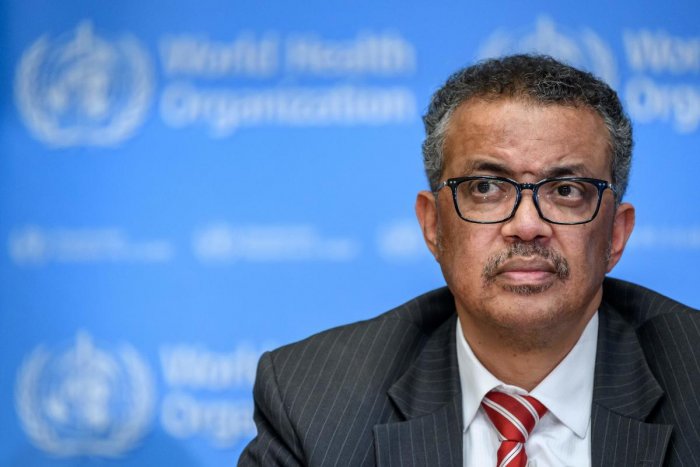GENEVA: The World Health Organization (WHO) has declared the COVID-19 pandemic to be over as a global health emergency.
“However, that does not mean COVID-19 is over as a global health threat,” Tedros Adhanom Ghebreyesus, WHO director-general, said Friday. ‘This virus is here to stay. It is killing, and it is still changing. The risk remains of new variants emerging that cause new surges in cases and deaths.”
The first known outbreak of COVID-19 occurred in November 2019 in Wuhan, China. When the WHO declared COVID a public health emergency of international concern on January 30, 2020, there were fewer than 100 reported cases, and no reported deaths outside China.
In the three years since then, the number of global COVID deaths reported to WHO has risen to nearly 7 million, though the true death toll, according to Tedros, is several times higher, reaching at least 20 million.
“COVID-19 has turned our world upside down,” he said, severely disrupting health systems, causing severe economic and social upheaval, and plunging millions into poverty.
But for more than a year now, he said, “the pandemic has been on a downward trend, with population immunity increasing from vaccination and infection, mortality decreasing, and the pressure on health systems easing.”
He noted these were among the many reasons he decided to take the advice of the International Health Regulations Emergency Committee to lower the level of alarm and declare an end to COVID-19 as a public health emergency of international concern.
Didier Houssin, chair of the IHR committee, said only two or three people on the 18-member committee displayed any hesitation about declaring an end to the pandemic as a global threat.
He acknowledged that many uncertainties remained, “particularly regarding the evolution of the virus,” which he said continued to circulate in every country as the pandemic continued.
Houssin said the committee also expressed concern about the big gaps in surveillance, reporting and health care, “particularly in the most vulnerable countries.”
“However, the situation has markedly improved, with less mortality and an increased immunity against the virus, an immunity which is vaccine-induced or naturally induced, and a better access to diagnosis, vaccines and treatment,” he said.
Houssin emphasized that after more than three years, it was “time to confront the COVID-19 pandemic, which has caused so much suffering, with new tools and new ambitions,” underscoring the need to prepare for future pandemics.
‘The battle is not over’
Mike Ryan, executive director of WHO’s health emergencies program, said this virus would continue to persist and threaten, but at a much lower levels of impact, tragedy, hospitalization and death.
“We have got control over the virus by applying the science, and by applying the hard-won lessons we have learned from this pandemic,” Ryan said.
“We now need to move on to the next phase. The battle is not over. We still have weaknesses, and those weaknesses that we still have in our system will be exposed by this virus or another virus, and it needs to be fixed,” he said.
While the public health emergency might be over, he observed that in most cases, “pandemics truly end when the next pandemic begins,” which means that the world must prepare for what is to come.
His colleague, Maria Van Kerkhove, WHO technical lead on COVID-19, picked up on this theme, warning that the virus was evolving. “While we are not in a crisis mode, we cannot let our guard down. Epidemiologically, this virus will continue to cause waves,” she said.
“What we are hopeful of is that we have the tools in place to ensure that the future waves do not result in more severe disease, do not result in waves of death, and we can do that with the tools we have at hand,” she said. “We just have to make sure that we are tracking the virus, because it will continue to evolve.”
WHO chief Tedros said, “The virus is here to stay and … it is time for countries to transition from emergency mode to managing COVID-19 alongside other infectious diseases.”
He said the world must prepare for the next pandemic that surely will come and “move forward with a shared commitment to meet shared threats with a shared response.”
(VAO)









Comment